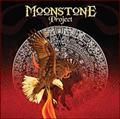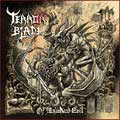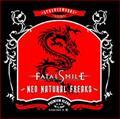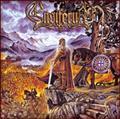DORNENREICH (at) - Her Von Welken Nächten (2001)
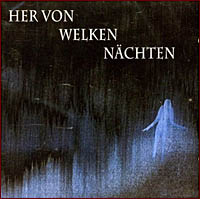
Label : Prophecy Productions
Sortie du Scud : février 2001
Pays : Autriche
Genre : Black Metal Avant-gardiste
Type : Album
Playtime : 9 Titres - 59 Mins
Combien de fois ai-je été ébloui par la luminosité et la profondeur de la prose de RAMMSTEIN et de son extraordinaire parolier, Till Lindemann ? On oublie trop souvent la beauté et la richesse de la langue de Goethe dans le Metal. Et croyez-moi que quiconque la maîtrise est assurément doté d’un atout, tant dans sa vie privée que professionnelle. Son parlé rude et aux limites de l’agression verbale est le témoignage vivant d’un passé et d’une existence tumultueuse. Je vous éviterais le cours d’histoire retraçant le parcours de la Prusse à l’Allemagne pour la bonne raison que DORNENREICH est… autrichien ! Bien que François-Ferdinand à une place tout aussi importante dans l’Histoire. Mais d’histoire, c’en est une autre… Pourquoi tout ce speech sur la langue allemande ? Car tout simplement, DORNENREICH est ce qui ce fait de mieux dans le domaine des lyrics en allemand. Leurs textes sont des fables, des poèmes à la puissance inégalée. Le tout combiné à un Black Metal avant-gardiste de très haute lignée. L’objet de cette chronique sera leur troisième album, Her Von Welken Nächten, sorti en 2001 sous la licence de Prophecy Productions.
La première chose qui frappe est la sobriété de l’artwork. Des ombres, un dégradé, une silhouette. Et c’est déjà l’inquiétude qui s’installe. Le malaise s’intensifie à l’ouverture du boitier. Une fois le disque retiré de son emplacement, on découvre une prise de vue floue et extrêmement dérangeante avec les trois protagonistes du groupe (à l’époque, DORNENREICH est aujourd’hui un duo) ligotés à des poutres. Le tout rappelle vaguement la dernière dance d’EIKENSKADEN. Mais que dire de la musique ? Les premières secondes d’« Eigenwach » font froid dans le dos. Eviga susurre à nos oreilles de sa voix la plus innocente des mots de glace. Puis les guitares se libèrent de leur étau pour lâcher les chevaux : un Black Metal torturé et boiteux. C’est un paysage d’hiver qui est dépeint. La neige tombe à gros flocons et le trio contemple la nature, blotti sous un épicéa majestueux. Ce disque devient très vite une réflexion philosophique sur les rêves, la vie et, bien entendu, la mort. Eviga et son chant de damné alterne avec des vocaux plus gutturaux, évoquant à maintes reprises le « Roi des Aulnes » de Goethe. Il y’a pourtant bon nombres de vocalistes qui, à mon avis, jouent sur la déficience mentale, la folie pour exprimer avec un maximum d’émotions leur malaise, leurs mots (je pense à Nattramn de SILENCER). Eviga en fait partie. L’écoute d’« Innerwille Ist Mein Docht » et ses accents aux violons vous le confirmera. Le bonhomme semble être à la limite des sanglots. Et plus on avance dans le temps, plus les idées se bousculent dans notre tête. Car si Her Von Welken Nächten va decrescendo avec plus de pistes ambiantes et calmes sur la fin qu’au début (« Hier Weht Ein Moment », « Mein Publikum – Der Augenblick »), c’est pour laisser davantage d’espace aux paroles. De ce fait, la musique n’est généralement qu’une toile de fond, quand elle n’est pas inexistante. Mais une toile de fond de qualité, qui sait se faire rugueuse (« Trauerbrandung ») ou effacée. La présence de Thomas Riesner au violon et de Biance Riesner au violoncelle procure une grande sensation de Folk aux compositions pour aboutir à un disque qui, dans son genre, est probablement une référence !
Avec cet enregistrement, les autrichiens proposent de l’évasion, de la découverte et de la réflexion. On n’écoutera pas DORNENREICH avec la même oreille qu’ARCTURUS, ALCEST, SPEKTR ou BLUT AUS NORD. Pourtant, les trois ont leur vision de l’avant-gardisme. Mais le trio à, sur ce point, une longueur d’avance : le maniement génial de l’allemand en chanson. C’est sans doute cette petite note d’originalité, encore inégalée aujourd’hui qui à fait de DORNENREICH et d’Her Von Welken Nächten une pièce maitresse du Black Metal de cette dernière décennie.
Ajouté : Jeudi 24 Septembre 2009
Chroniqueur : Stef.
Score :     
Lien en relation: Dornenreich Website
Hits: 10983
|




